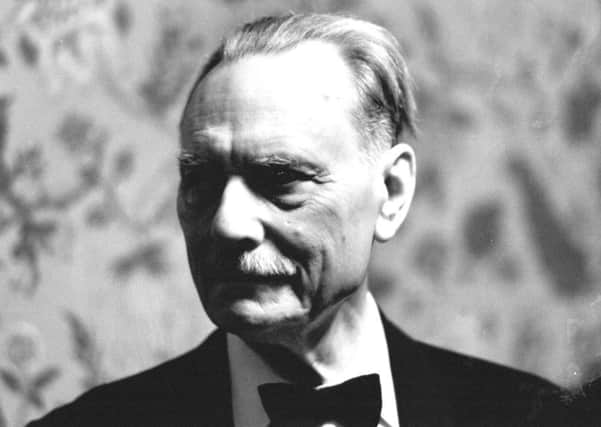Leonie Jackson: Why Enoch Powell's Rivers of Blood speech still echoes in Brexit Britain


Two days later he delivered his infamous ‘Rivers of Blood’ speech to a Conservative Party meeting, sending shockwaves through his party, leading to his dismissal from Edward Heath’s shadow cabinet and causing huge social division over the speech’s content and tone.
Advertisement
Hide AdAdvertisement
Hide AdOn its 50th anniversary the impact has hardly diminished, as demonstrated by the BBC’s much debated decision to air the speech in full. Powell and his views remain as controversial as ever.
As a Wolverhampton MP, Powell witnessed a town in the throes of vast social change. Commonwealth citizens from India, Pakistan, and the Caribbean had been invited by the government to fill rapidly expanding post-war positions, and the industrial Midlands saw large numbers arrive to take up posts.
What was initially understood as a temporary immigration, however, soon showed signs of becoming more permanent as families came to join the men who had settled in the UK.
Advertisement
Hide AdAdvertisement
Hide AdIn Wolverhampton this change was keenly felt, and intense (frequently hostile) discussions took place over the racial imbalance of schools, the overcrowding of hospitals and the strange cooking smells wafting through residential neighbourhoods.
A highly public campaign by local Sikh bus drivers to wear their turbans at work was causing further divisions in the town, exacerbated by the Race Relations Bill, at that time being debated in Parliament.
The Bill, which would make racial discrimination in housing, employment and public places illegal, caused further anxiety for those who believed freedom to discriminate was an absolute right.
Into this rising tide of anti-immigrant feeling stepped Powell, with a speech full of foreboding and apocalyptic fantasy. Claiming that the country was sowing the seeds of its own destruction by allowing large numbers of dependents to settle, he demanded that immigration be drastically reduced, while those already here should be strongly encouraged to go back.
Advertisement
Hide AdAdvertisement
Hide AdAs he read out the complaints of his constituents he positioned himself as the only person willing to speak up for ‘ordinary people’ against the out-of-touch elite of Westminster, busy fiddling while the country burned. This posturing was well-received by a large section of the public and thousands of letters of support poured in.
Within the Tory party, Powell’s name was mud. Ted Heath immediately sacked him from the Shadow Cabinet. For those who feared the implications of the Race Relations Act, this was effectively Powell’s martyrdom for the cause of free speech, and hundreds joined strikes and marched to demand his reinstatement.
For Powell, this marked the end of his political ambitions and he would never again hold a senior position. But the tendency to view him as a victim has downplayed the effect his speech had on the lives of black and South Asian people, who faced an emboldened, and often violent, racist reaction.
While white residents feared the changes in their neighbourhood, non-white residents had good reason to fear for their physical safety. Racist attacks increased markedly after the speech, including an attack in Powell’s own constituency where 14 white youths chanted his name as they slashed guests at a West Indian christening.
Advertisement
Hide AdAdvertisement
Hide AdPowell always denied he was racist and refused to take any responsibility for the violence. But he understood racism as the belief that white people were superior because of the colour of their skin.
In fact, Powell was in a large part responsible for popularising what has been called ‘new racism’, the idea that the problem with immigrants was not their colour but their culture. Because of this, he believed integration was impossible and that violent race riots would be the inevitable result. Powell was wrong on both counts. Although violence has on occasion broken out, it has been the exception rather than the rule, and despite the constant scrutiny faced by multicultural communities, successful integration is evident everywhere and every day; in politics, sport and the media, through to widespread intermarriage, diverse work spaces, and youth subcultures from Ska to Bhangra to Grime.
But Powell was right about one thing: the stars from his explosive speech remain in the air 50 years later. At a time of remarkably similar anxieties, this is hardly surprising. ‘Rivers of Blood’ tapped into profound fears about the future of the nation and the effect of immigration on British culture.
His championing of the ‘ordinary person’, left behind by government elites, has a further ring of familiarity. And the aftermath of the speech amply demonstrates how populist rhetoric can devastate the everyday lives of minorities, encouraging and legitimising waves of violence and discrimination.
In a post-Brexit landscape, the parallels are stark.
Dr Leonie Jackson is a lecturer at Huddersfield University. She is the author of the recently-published book Islamophobia in Britain.